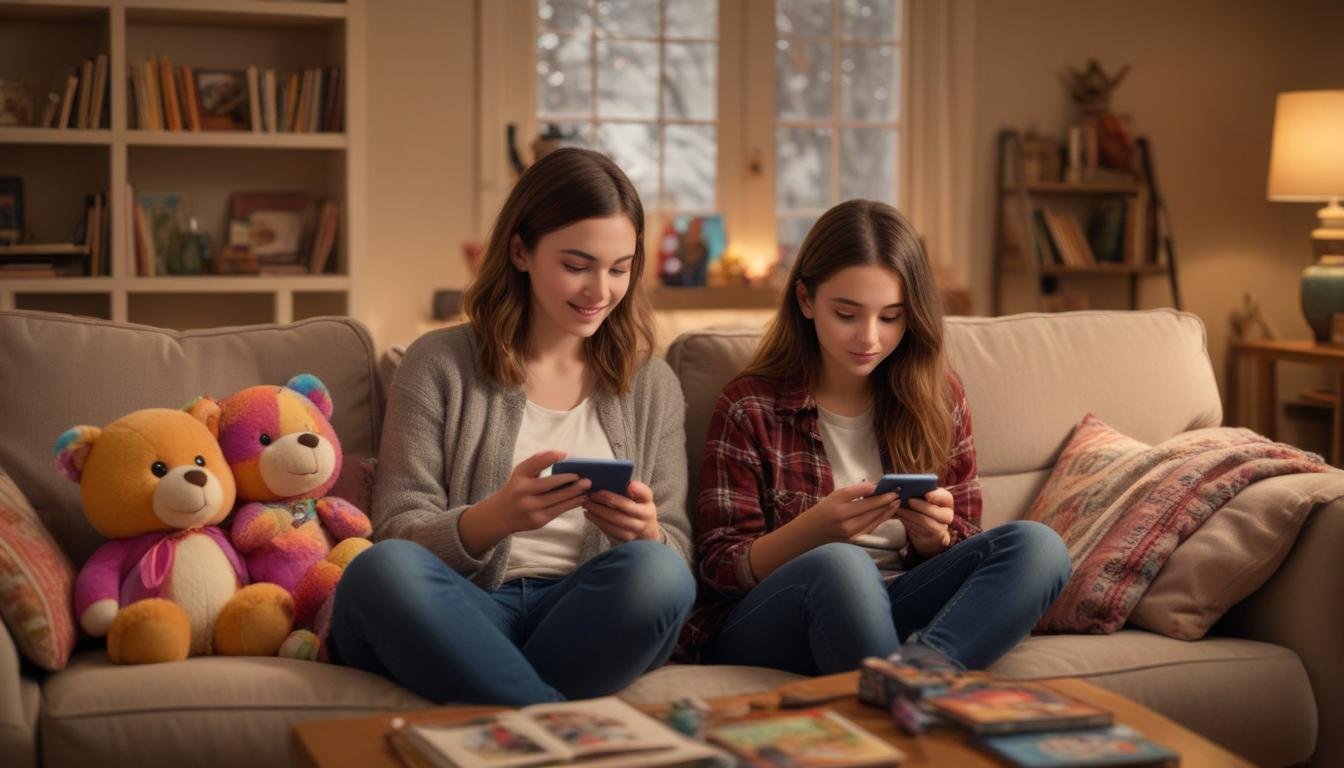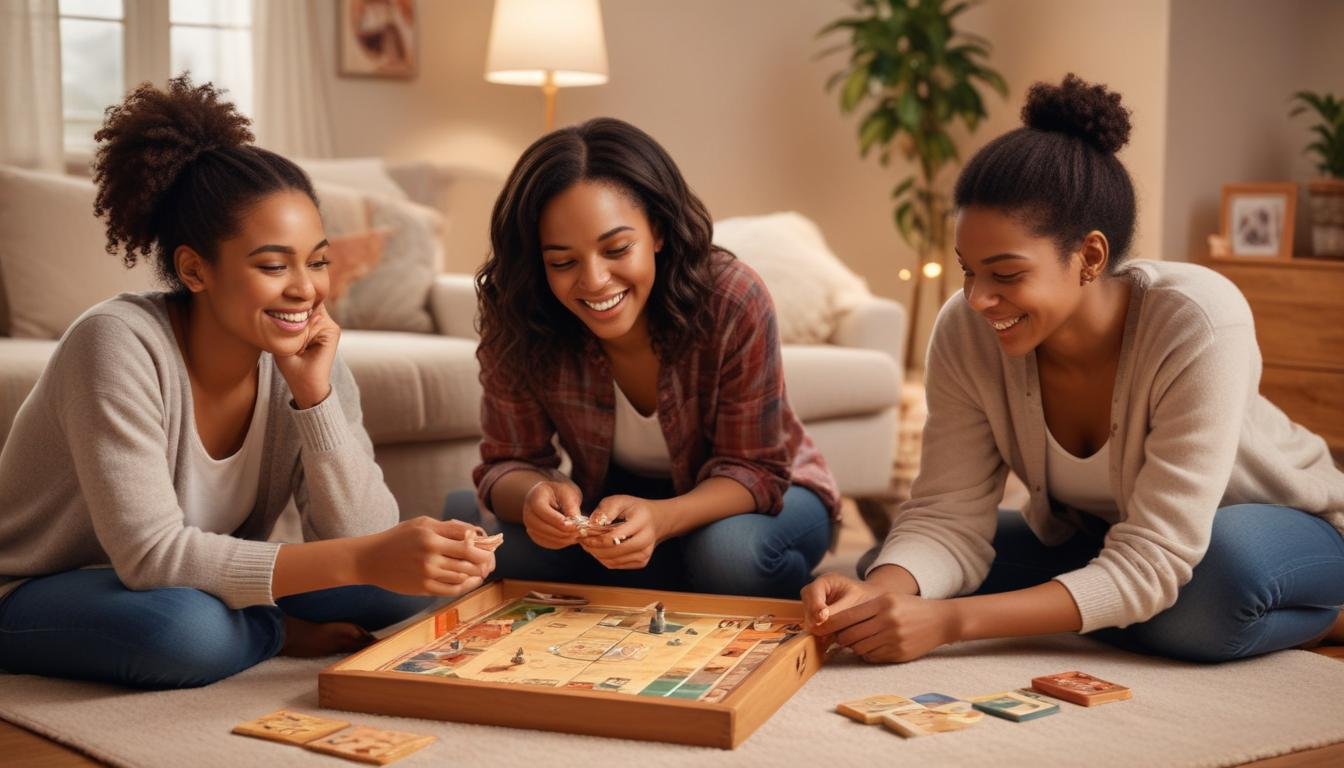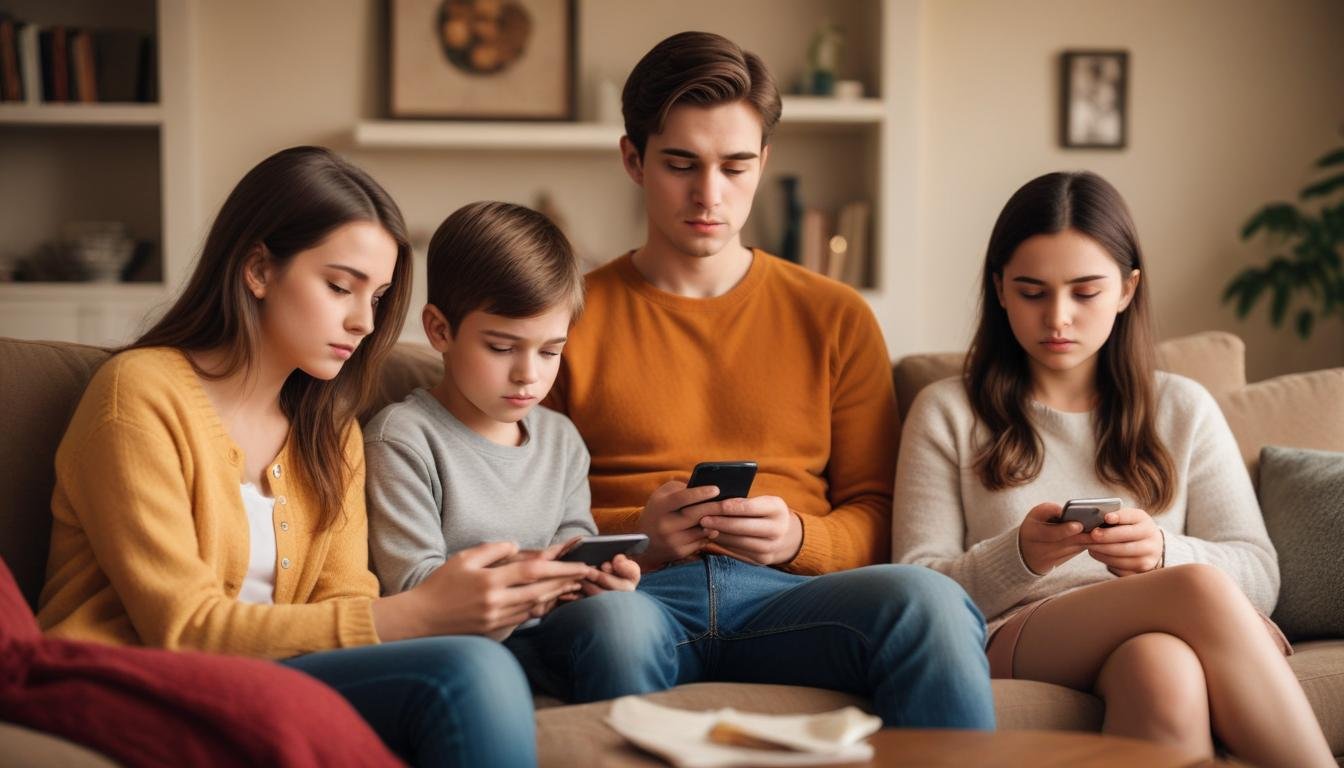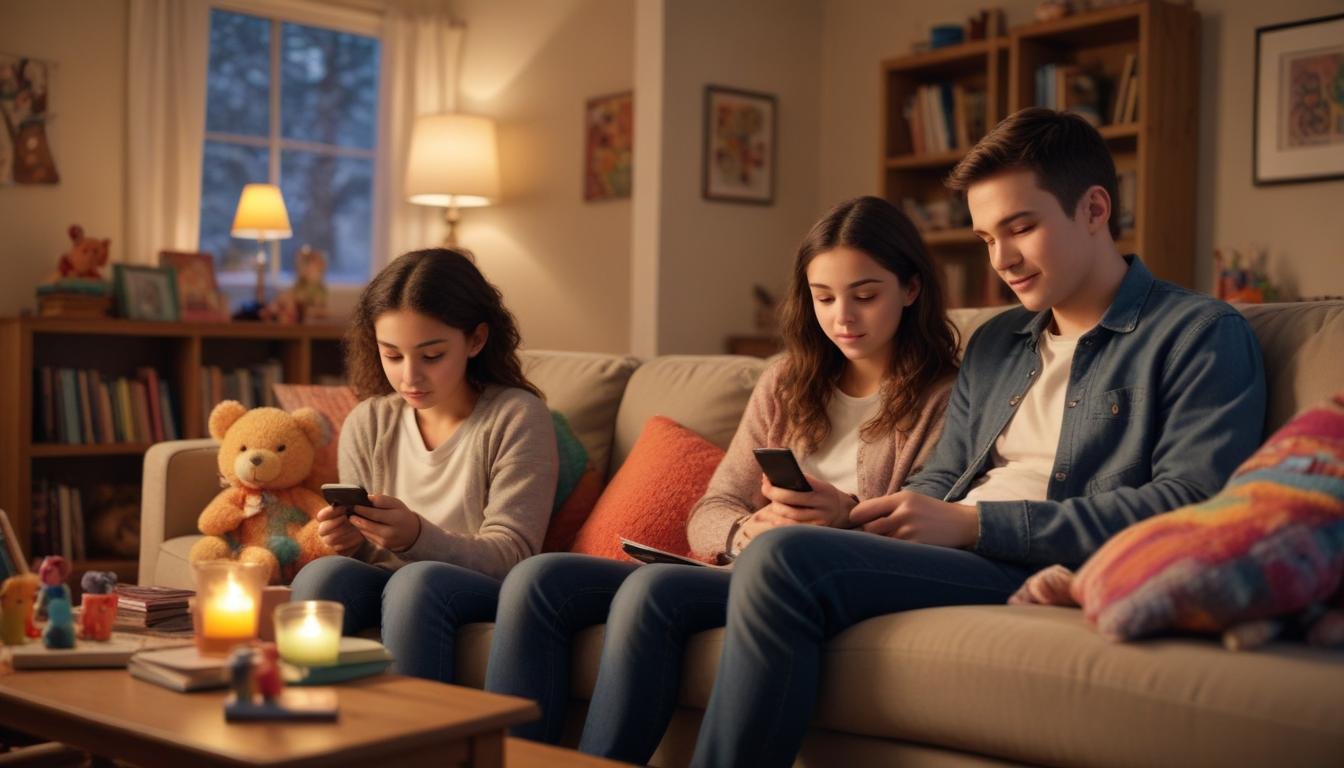Understanding the Link Between Social Media and Teen Mental Health
We live in a world where social media is everywhere. My kids, like many others, spend a lot of time online. I remember a day when I saw my daughter, Patricia, sitting with her phone, looking sad. It made me think about how social media affects her feelings. Research shows that spending too much time on these platforms can sometimes lead to feelings of loneliness or low self-esteem. This is something I have to stay aware of as a parent. I want my kids to have Social Media Wellness in their lives, where they can enjoy the fun parts of social media without the hurtful sides.
Robert, my oldest, often shares funny memes with his friends. But there are moments when I see him scrolling for too long. I’ve noticed he might get frustrated or upset after seeing something negative. It reminds me how important it is to talk openly about what they see online. I love having family discussions about their feelings. It helps them realize that it’s okay to feel a certain way and that they’re not alone. Together, we explore how certain posts can make us feel happy or sad and how we can choose what we follow online.
Mark and Matthew, my twins, are learning about social media too. They often ask questions about what they see. I encourage them to think critically. I tell them stories about my childhood, how things were different before the internet. I explain that not everything online is true and that it’s essential to talk to someone if they see something upsetting. These conversations make us closer and help me give them the best parenting advice. I want them to grow up knowing that it’s essential to talk about their feelings and not just keep them inside.
I genuinely believe that understanding the link between social media and mental health is a family journey. It’s about being there for one another, listening, and sharing our experiences. If we keep these lines of communication open, our kids can have a healthy relationship with social media, and that’s something to celebrate! Seeing them smile and feel good about themselves while enjoying their digital world fills me with joy and hope.
The Role of Parents in Monitoring Social Media Use

As a parent, I feel it’s my job to guide my kids in this big, digital world. Social media is like a fascinating book with many stories inside, but not all of them are good. I want to help my children understand what they’re reading and how it can impact their feelings and thoughts. That’s why I take an active role in monitoring their social media use. I remember when Patricia first got her own phone. Michelle and I sat down with her to talk about it. We explained that social media can be fun but also tricky. It was essential for her to know that we were there to help.
We set some ground rules together. We agreed that she would show us her social media accounts and let us know who she was talking to online. This way, we could have discussions about safety and what is okay to share. It wasn’t about invading her privacy; it was about being her support system. The same goes for Robert. He often wants to keep things private, but we remind him that we’re here to help him make good choices. It feels good to know he trusts us enough to share things he sees and feels.
Mark and Matthew are still a bit younger, but they love to explore the world of cartoons and games online. When I sit with them, we talk about the fun things they see and also some things that might not be so great. I tell them how I wish people would be kind online, just like I want them to be kind in real life. It’s a comforting way to remind them that being nice and respectful is super important, no matter where they are, in person or online.
One day, we were watching a funny video together, and I noticed one of them looking a bit off afterward. I asked, “What’s going on?” They nervously told me about some mean comments on another video they had seen. That moment made me realize how crucial it is for me to be there for them when they face tough situations. Talking openly helped him feel better. He learned that it’s okay to voice his worries instead of keeping them inside. These experiences give me valuable parenting advice on how to navigate social media wellness.
Every family is different, and our ways of monitoring social media will vary. But what’s important is to stay involved and create a safe space for our kids to express themselves. I always let my children know that I come from a place of love and understanding. They can always count on me. With all these conversations and shared experiences, I believe we can create an environment where my kids can flourish and feel secure in this digital age. Together, we’re building not just their online worlds but also our family bonds, and that’s a priceless treasure.
Strategies for Promoting Healthy Social Media Habits

Being a parent in today’s world means finding ways to help my kids enjoy social media safely. It’s like teaching them to ride a bike. At first, they need training wheels, and we are their support. I believe every family can promote healthy social media habits, and I’m excited to share some ideas that have worked for us!
One evening, I gathered the kids, and we talked about what makes them happy and what doesn’t. I asked them how they feel when they see certain posts. For Patricia, it was the likes and shares that felt great, but sometimes the pressure to look perfect was stressful. So, we agreed to share more authentic moments online, celebrating the real and the messy parts of life. Together, we decided to have “real life appreciation days,” where we share things we love about our everyday life—like homemade dinners or family game nights—on our social media, instead of just the shiny highlights. This way, they learn that it’s okay to be themselves and that Social Media Wellness comes from sharing joy in simple things.
With Mark and Matthew, we set aside “no social media” family time. On weekends, we pick a fun activity to do together, like hiking at a nearby park or playing games in our backyard. This gives them a break from screens. They love running around and discovering nature. We also talk about what they enjoyed the most afterward, allowing them to process their feelings without the influence of online opinions. Unlike scrolling through social media, this time together brings us closer and fills their hearts with joy.
Robert has taken on the role of a big brother and often helps his younger siblings navigate their experiences online. I find it amazing how he creates a safe space for them to share their worries. Recently, he told me a story about a time when he saw a friend struggling online. Instead of just scrolling past, he reached out with a kind message. I was so proud of him! It shows how we can boost each other up and create a circle of positivity. It’s this kind of teen support that truly warms my heart and inspires me—he’s applying the parenting advice that I’ve shared with him.
Another great strategy is involving their friends in our discussions. Sometimes, I invite their friends over for family movie nights or game nights. We talk about social media together and share tips. It makes it easier for them to discuss how they feel in a group setting. I want them to realize they’re not alone in their experiences. Everyone goes through ups and downs online, and it’s okay to talk about it.
I encourage my children to be mindful of their online interactions. We talk about the “like” button and how it can sometimes make them feel attached to approval from others. I remind them that their worth does not depend on likes or comments. This has been a vital lesson for them. We even made up a little saying together: “Be your own biggest fan!” They love to remind each other of it, especially when they feel a bit down.
Every small step helps us build healthy habits. By sharing experiences and talking openly, we create a home filled with understanding and support. I truly believe that with a touch of love, we can help our children navigate social media in a way that enhances their happiness and helps them grow. Together, we’re laying the groundwork for a brighter, more connected future!
Resources for Supporting Teen Mental Well-Being

To support my kids and help them thrive in today’s digital world, I always look for resources that can make a difference. One way we find help is through books and online articles that talk about social media and mental health. I remember picking up a book called “The Good, the Bad, and the Digital.” It opened my eyes to how social media affects kids and gave us practical tips. I shared some parts with Michelle, and together we created conversations around those ideas at home. We even had the twins help us make fun posters with inspirational quotes about kindness and positivity. It was a great project that brought us together!
There are also amazing websites and organizations focused on promoting teen mental health. I discovered some online platforms that offer tools and tips for families. They have fun activities to help kids express their feelings and understand social media wellness. One day, I showed Patricia a video about a group of teens talking about their experiences online. She felt inspired and even shared it with her friends. It was heartwarming to see her take charge of her journey!
I often talk to grandparents too. My parents, Michael and Julia, have a wealth of life experience. They sometimes join us for family dinners and share stories about how they managed their feelings when they were younger. My mom, Julia, even created a family scrapbook where we can paste photos or drawings that reflect our real lives. This helps us focus on the good times and reminds us that life isn’t just about what we see online. I think it strengthens our family bond and gives us great parenting advice on coping with life’s ups and downs.
Sometimes, I also reach out to other parents in our neighborhood. We talk about our kids’ social media habits over coffee. It’s comforting to know that we share similar worries and dreams for our kids. And we often come up with ideas together! Last month, we organized a “Tech-Free Day.” Everyone joined in, and we had a picnic at the local park. The laughter of kids playing made my heart smile. We took a break from screens and created beautiful memories that will last a lifetime!
In our family, we focus on open conversations. I tell my kids to always speak up if they see something that makes them feel uncomfortable. I want them to know they can trust me without fear of judgment. We talk about mental health openly, so they understand it’s healthy to share how they’re feeling. This teen support strengthens our relationship, and I can clearly see that my kids feel more confident discussing their worries. With every discussion, I hope to inspire them to support their friends too.
Lastly, we cherish the little moments together. Whether it’s watching a movie or cooking dinner, those times bring us joy. We make it a point to check in with each other afterward, asking how everyone felt about the activity. This simple habit helps us connect on a deeper level and reminds my kids that they’re never alone in their struggles. By sharing resources and being there for one another, we create a nurturing environment at home where my children can grow into kind and compassionate individuals. That’s what it’s all about for me—sparkling moments filled with love, honesty, and plenty of laughter!
FAQ

Sometimes, people ask me how I approach conversations about social media and mental health with my family. It’s a good question! I think having an open and honest dialogue is very important. When it comes to parenting advice, I always emphasize the value of listening. I believe there’s no such thing as a silly question, and my kids know they can ask me anything. Just the other day, Robert came to me and said he heard a friend talking about feeling left out because they weren’t getting enough likes on their posts. I could see it was bothering him, and I was glad we had a chance to talk about it. We discussed how social media isn’t everything and that sometimes it can create a false picture of reality. He felt relieved to share and even said he would reach out to his friend to offer support. It filled my heart with pride, seeing him step up as a source of teen support for others.
In our family, we also make it a point to check in with our grandparents. They have so many stories and wisdom to share about life before smartphones. I remember one evening when my mom, Julia, shared a story about how she used to write letters to her friends. It was a fun reminder of how connection comes in many forms, not just through screens. We compared it to how easy it is to send a text, but sometimes, a heartfelt letter meant more. This dialogue keeps us grounded and helps my kids to appreciate the “real-life” connections they have around them.
We also explore different resources together, like videos or articles about social media wellness. I’ve found that when we share these resources as a family, everyone feels included. It’s empowering for my kids to understand that they are not alone in their feelings. We even plan “family media nights” where we watch a documentary that talks about the impact of social media on mental health. After the show, we discuss what we learned. I love hearing their thoughts, and it gives them a chance to voice their feelings comfortably. It’s such a great bonding experience!
Sometimes, I remind my children to take breaks from social media. My wife, Michelle, and I often lead by example. We’ll put our phones away during dinner or go for walks without any screens. This not only boosts our family time but also shows them that it’s okay to disconnect from the digital world. I want them to know that their happiness doesn’t depend on likes or comments—they are valued just the way they are, and for me, that’s the best encouragement I can give.
About me
I’m Dr. Victor Lee, and cybersecurity isn’t just what I do—it’s what I’m passionate about. With my doctorate in Computer and Information Security and over 20 years of experience, I’ve had the privilege of watching the cybersecurity landscape evolve. I believe in sharing knowledge to make a difference, which has led me to teach online college-level courses. My mission is to make a meaningful impact in the fight against cyber threats.
My family is my greatest joy, with my wife and four wonderful kids. My wife, Michelle, is a talented marketing manager in her late forties. We have twin sons, Mark and Matthew, who are 8 years old and bring so much joy to our lives. Our daughter, Patricia, is 10 years old and thriving in middle school. Our oldest, Robert, is a 14-year-old high school student embracing new challenges. As a family, we call the beautiful city of Fresno, California, our home.


